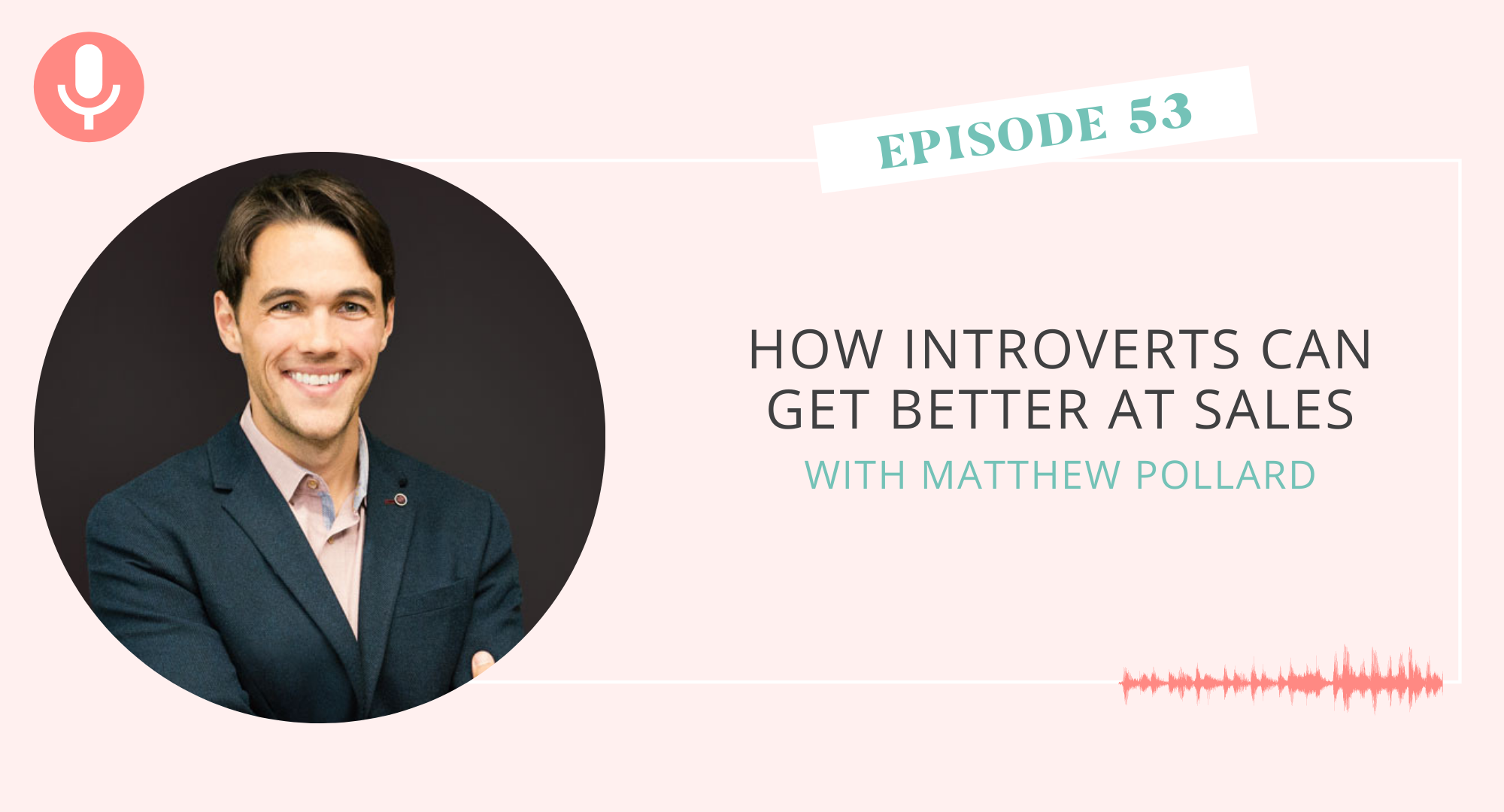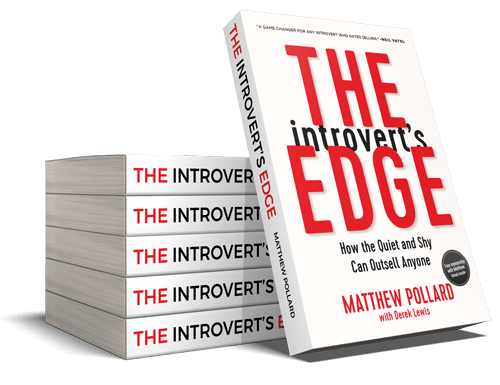Struggling to get the results you want from your emails?
Discover 15 simple yet powerful ways to elevate your email marketing and start seeing real engagement!
Grab your freebie!
Blog Categories
Helping small business owners, virtual assistants, and creative entrepreneurs grow their business.
Hi, I'm Tara! I'm a multi-passionate business and marketing coach.
learn more + get a copy:

Disclaimer: I earn from qualifying purchases. Some of the links on my website are affiliate links, which means, at no additional cost to you, I will earn a small commission if you click through and make a purchase.
Sales for introverts can be scary because you don’t want to come off as spammy, sleazy, or salesy. It looks so effortless for extroverts, but once you incorporate a sales system or process, you can start sharing your value beyond your skillset or what makes you different from your competitors. This helps you find clients more successfully, and it even makes them come to you. Even though your path to success looks different from an extrovert, it doesn’t mean it is any less valuable. If you are tired of being afraid of sales as an introvert, let’s bring your value to the table so sales can become more comfortable.
Our guest on the podcast today is Speaker and Author Matthew Pollard. He is an internationally-recognized consultant, speaker, blogger, author, mentor, coach, and serial entrepreneur. Called “the real deal” by Forbes, he’s the bestselling author of The Introvert’s Edge, Amazon’s 8th Most-Sold Book of the Week, and Book Authority’s #2 “Best Introvert Book of All Time.”
In this episode, Matthew and I dive into:
- How his previous direct sales job launched him to become the sales expert for introverts
- If systems and processes belong in sales
- The biggest struggle service providers face when talking about packages or offers
- How your business isn’t actually about you, but instead the people you serve
- …and much more
How Direct Sales Catapulted Him Into the Sales Guru For Introverts
Matthew was a timid kid growing up and was pretty uncomfortable around people. He had the reading speed of a sixth-grader, wore funny colored glasses, and had horrible acne, which made quite the combination. His colored lenses were from his diagnosis of Irlen Syndrome at age 16, which just so happened to help him read better.
For two years, he hustled every day and got into the top 20% of his state, but his family could see that he was exhausted. They just saw his going to university at the time, but Matthew didn’t know what he wanted to do, so he decided to take a job for a year to help find himself. He took a job in real estate doing data entry in the back office. Three weeks into working that role, his boss pulled him aside to say they were closing the office. This was just before Christmas in Australia, and it meant that it was not only Christmas but also summer in the southern hemisphere. Most people and businesses would be on holiday from December 20th until the middle of January, so no one would be hiring.
The only jobs he could find were commission-only sales roles. There were three open at the time; he applied for all three and got three interviews. His confidence had risen, but not for long because he found out that the company hired everyone after receiving three job offers.
After five days of product training and not a single second of sales training, he got thrown onto Sydney Road in Melbourne, Australia, with over 1000 doors on each side, and told to sell. He had no idea what to say, but he took a deep breath, walked in, and was politely told to leave. Shortly after that, he was sworn at and told to get a real job. This repeatedly happened until he got to his 93rd door, where he finally made a sale. His excitement died down pretty quickly when he realized that he had to go out and do it again tomorrow and every day after that. As an introvert, he knew that he wasn’t great at sales, and probably most other introverts weren’t either. He could either accept subpar performance, give up, or take responsibility for what he is doing and find a way.

Learning a New Way to Sell
Matthew decided to take responsibility for his actions. He wondered if there was another way of learning how to sell and knew that if it was going to work for him, he had to make a system. How could he take the personality out of the equation and rely on a solid structured system? So instead of taking forever to read books, he discovered YouTube. Day after day, he spent eight hours out in the field applying what he learned and eight hours back at home practicing the next steps. On weekends, he spent 16 hours practicing. Eventually, he got better, and 68 doors became 43 doors until it went down to three doors before getting a yes.
His manager pulled him aside about six weeks in and said he was blown away by his results. It turns out that the national sales figures came in, and Matthew was the number one salesperson for the company in the whole southern hemisphere. Shortly after that, they promoted him to management. He states that he was a terrible manager, and everyone he was given to manage quit. He went back to YouTube to learn how to manage and got pretty good at it. After that, he was promoted about seven times a year later.
This prompted him to start up his own business. Fast forward just shy of a decade, Matthew has been responsible for five multimillion-dollar success stories and gone from teaching, being terrified to sell, to teaching hundreds how to do it. Through the Introverts Edge book series, he teaches tens of thousands how to sell and network through those books.
Should You Have Systems and Processes in Sales?
There is a common misconception in sales that you don’t need training or to be given a sales system to excel. If you go into an accounting office, there will be systems and processes, but those things don’t apply to a sales position. You either have this sales gift, or you don’t. Matthew says that this has become the most significant lie anyone’s ever been told. The truth is systems and processes outperform everything. A man named Brian Tracy says the top 10% of all sales performers have a planned presentation. The bottom 80% say whatever comes out of their mouth. Of course, the top of that 80% is probably the extroverts, and they’re also the loudest about it, but at the top, it’s fascinating that there are many more introverts than extroverts. They are following a planned process. Extroverts are less likely to follow a plan because they are brilliant at it upfront.
Introverts, on the other hand, do terrible at sales. If they are willing to hold on to a sales process and hold on to it for dear life, then over time, and it’s not a very long amount of time, you end up being the top performer because you’re following a planned process and your religious about following that process.
From an organization’s perspective, they often hire people they think to have a natural gift because they rely on the fact that they don’t have a system. Matthew believes that organizations would do much better if they implemented a plan. For small business owners, if you want to have a rapid growth business doing what you love and a business that revolves around you, your family, and your life -you need to have a sales system. This is especially true if you feel uncomfortable with sales. On top of that, it’s also not going to lead to as many sales, and you will feel like a salesperson.
The Benefits of a Sales System and Process
If you have a system, you’ll feel like you are serving your customers, which means the definition of sales derives from the Scandinavian word to serve. If you can genuinely help your customers and make them better off, you are not selling unless you don’t know how to sell. In which case, you’re pitching it, it’s uncomfortable, and it feels salesy. Then, you can get comfortable with a sales process and be excellent at it. Once you learn a great sales process, you realize that sales should be a three-step process. If you have wrong messaging, you are not differentiated, not niched down; then there’s more heavy lifting required in the sales process. Everyone should focus on creating a sales system, but truthfully, a sales system without differentiation and niche marketing means you have to work much harder than you need to.
The Biggest Struggle Service Providers Face When Talking About Their Packages or Offers
The biggest thing that most people, especially service providers, struggle with is articulating what they do in a way that gets people to get excited. If you just tell people what you do as a service provider and what you offer, sales will be complex because they want to talk about your price, and the conversation will feel salesy. So the biggest goal is to sidestep all of that. You don’t want to be seen as a commodity, so learn how not to articulate that value in jargon.
For example, there is a client named Wendy, who Matthew helped to find the things she was doing outside of the scope of her work as a Mandarin Language Coach. Out of all of the clients, she was helping, two stood out to Matthew. She helped these two specific clients with language consulting and learning the difference in building a rapport relationship as they were being relocated to China for work. Wendy has since changed her title to the China Success Coach, and she assists families relocating to China. She markets herself to immigration attorneys to then take those executives over once those attorneys make an introduction. As a result, she can charge $30,000 for her 5-week program, and $3,000 goes to the immigration attorneys as a commission—a win-win situation.
Once you figure out what you are doing outside of your skills and work scope, you can realize the higher-level benefit of that. It allows you to niche down, and for Wendy, it was respect, rapport, and E-commerce in China. The high-level benefit was the executive’s success in China. If you give them a better option and show them that you are uniquely qualified and specialize in working with them, you are seen as the only logical choice. In Matthew’s book The Introverts Edge to Networking, he can teach you how to master the networking room. His goal is to show you how to master the space so you never have to go to one. Once you have learned how to articulate the value of what you provide outside the scope of your skill and show your difference, you can start to express that online. Long gone are the days of posting on social media with your donut or dog for something to say. You now have something super clear that breaks through the noise.

Your Business Isn’t About You; Rather, It’s About Who You Serve
Matthew is always trying to tell his introverted customers that your business isn’t about you. When you can embrace those words, it becomes a lot easier. When most people go to networking events, they may say, oh, I’m an accountant, and one of the things that Matthew does often is he focuses on people that have got these unique challenges. That’s salesy. You should be talking about serving others when you are networking. When you are selling, you can have a different approach. What you can do is download Matthew’s first chapter of his original book, The Introverts Edge, and it will help you realize that you can be a fantastic salesperson. It maps out the seven steps that you need to sell.
Most introverts well over-educate their customers, and what they are doing is hitting them in the face with a firehose of information. They are not going to remember any of it, and they are not going to buy from you because of that. You realize there are some things out of order, and once you fix that order along with the gaping holes, you double your sales in the next 60 days because you get a simple understanding that you can implement for yourself.
Studies out of Princeton highlight people remember up to 22 times more information when embedded into a story. The power behind this is that you can give people all this jargon, but they won’t remember any of it. When embedded into a story, they will remember much more of it. For example, the words chairs, porridge, and beds will not be retained in that order unless you have a story like Goldilocks and the Three Bears.
Another study out of Stanford that is really cool concerning introverts and rapport is that introverts struggle with rapport. Studies show that introverts have deeper rapport relationships with the people they know at the beginning. The studies highlight that when you tell a story, it activates the reticular activating system of the teller and the listener parts of the brain. This causes the brains to synchronize, which is why Matthew told the real story of Wendy.
There are two reasons:
One is that he wants you to remember the story, and the second is he wants to create a relationship with you so that you feel comfortable with him. Therefore, you will be able to follow the advice that he gives you.
When you use stories in sales, you create an artificial rapport that you can now foster into a deeper connection. However, it also short circuits the logical brain. Instead, you speak directly to the emotional brain. When we tell a story, the listener goes to storytime and listens with their emotional brain. The logical brain is the part going that will not work for me. Together, those three are powerful in networking, sales conversations, podcast interviews, and speaking from the stage. If you put all that together, sales shouldn’t be uncomfortable, but you need to leverage a story to get the person on-site and foster a relationship.
An Introverts Path to Success is Different Than That of an Extrovert

Matthew’s vision in life is to help the average introvert realize they are not a second-class citizen. Their path to success is just different from that of an extrovert. The truth is the systems that work for introverts work for extroverts, too. The thing with an introvert is you know that you can’t, or you find sales super uncomfortable. Sales should never involve bulldog techniques or hard closing.
Likewise, marketing should never feel uncomfortable, like trying to bend yourself to the market. You always need to focus on what’s unique about you, then create a system so that it doesn’t sound like a judgment when a customer says no. Also, when you build the process and differentiate yourself, you can go after a market that makes customers much more likely to say yes. You can have a fantastic rapid growth business with customers that chase you and value your advice if you can do that. With his Introvert’s Edge Book series, he can teach you how to share your value, make sales easier with his step-by-step process, and help you to network better.
Matthew shared so many powerful insights on sales for introverts, how to share your value, and networking in a way that makes people want to work with you. He shared how he became the sales expert for introverts after creating a system in his previous direct sales job, the question of including systems and processes in sales, the biggest struggle service providers face when they talk about packages or offers, how your business isn’t usually about you, and how your path to success as an introvert is different than that of an extrovert.
What is the value you offer that sets you apart from others in your industry?
A Breakdown of This Episode
[1:40] How Matthew became the Sales Expert for Introverts after creating a process in his previous direct sales job
[8:56] The misconception that sales don’t need to have systems or processes in place
[12:25] The biggest struggle service providers face with selling and how to fix it
[23:54] Your business isn’t you at all, but how you are serving your clients
[32:51] How your path to success as an introvert is different than an extrovert but just as important
[34:14] The Introvert’s Edge Book Series and what is covered in each of the books Matthew has written to help introverts with sales
If you enjoyed this episode, I invite you to take a screenshot and tag me on your Instagram stories @introvertcoach and tell me your biggest takeaway!
Download the Episode Transcript
Resources Mentioned in the Show
- TheTaraReid.com
- Join the Introvertpreneur Club
- Apply for a VIP Creativity Day
- Content Kits for Service Providers
- Course: Content to Clients
- Matthew’s Instagram
- Matthew’s Facebook
- Matthew’s YouTube
- Matthew’s LinkedIn
- Matthew’s Twitter
- Matthew’s Website
- The Introvert’s Edge Podcast
- The Introvert’s Edge Book
- The Introverts Guide to Networking
- Rapid Growth Formula Template
This one's on me. Complimentary free stuff coming right up.
leaving so soon?
The training vault contains on-demand access to several trainings and presentations around growing your business and creating additional revenue streams.
the training vault library
Want to learn the 4 marketing methods that work best for most introverts + how to use them effectively to grow your business? This free webinar covers it all.
market your business as an introvert
Featured Masterclasses:
Here's your FREE pass!
A business strategist and marketing coach who focuses on helping course creators, coaches, and service providers, build sustainable businesses without social media.
